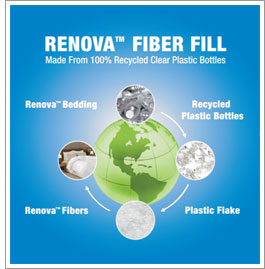 India currently has over 1,40,000 hotel rooms spread across the country. As one of the fastest growing economies in the world, it boasts the second most projects in the hotel pipeline after China; one of the prime reasons for Pacific Coast Feather Company (PCFC) to establish its presence in this burgeoning hospitality market. With so many hotels opening in India all of them need bedding and almost all the upscale hotel brands have standards for sleeping experience. As the supplier for Hilton Group, Hyatt Group, Marriott Group, and many more, PCFC designs those specifications to create a sound ‘sleeping experience’.
India currently has over 1,40,000 hotel rooms spread across the country. As one of the fastest growing economies in the world, it boasts the second most projects in the hotel pipeline after China; one of the prime reasons for Pacific Coast Feather Company (PCFC) to establish its presence in this burgeoning hospitality market. With so many hotels opening in India all of them need bedding and almost all the upscale hotel brands have standards for sleeping experience. As the supplier for Hilton Group, Hyatt Group, Marriott Group, and many more, PCFC designs those specifications to create a sound ‘sleeping experience’.
Since the company has set up an office in India, it has been doing really good business for new hotels. Among its new hotel clients in India, we can see Hilton, Westin, Meridien, Holiday Inn, Novotel, Ibis etc. PCFC has worked with its Indian distributor Hospitality Sales and Marketing Company (HSMC) on many challenging projects and has participated in the key trade shows. In December 2009, PCFC organised a bedding seminar with the help of Indian Housekeeper Clubs to introduce the best products and latest product trend and knowledge to the marketplace.
Though the company is witnessing a quick expansion, its commitment to being green is equally important to the management committee. As a family-owned company for over 125 years, the owner believes in the sustainable business model.
 Innovations on green products:
Innovations on green products:
As environmental concerns continue to become more prevalent, increasing number of hotels are adopting sustainable business practices and policies. As per a recent AH&LA survey, hotels are no longer limited to energy consumption, waste management or cleaning and hygiene product use as it is becomes more common for hotels to establish environmental purchasing policies, seeking out suppliers using ‘green’ raw materials and providing eco-friendly products.
top_140810_4.jpgPCFC takes special care to minimise its long-term environmental impact by engaging in sourcing eco-friendly fills. The fill and fabric make up the majority of an item’s carbon footprint hence we try to use materials that can best reduce the impact on the environment. The latest offering in the eco-friendly product category came through Renova in the Indian market in 2009. In contrast to competitive products that use coloured recycled plastic bottles, PCFC’s Renova Fibre is made from 100 per cent post consumer clear recycled plastic bottles.
As a resilient, high-performance fibre, the environmental benefits of Renova are significant. For every pillow filled with Renova, 27 bottles are saved from going into the landfill. After putting it through a battery of tests, Renova fibre performs exceptionally well and holds up particularly well to machine washing; given the origins of the fibre, it is affordable too.
PCFC is not new to the use of eco-friendly fills. The company has been creating premium down and feather bedding, which also offers a very low carbon output, for over 125 years. Down and feathers are by-products of the food processing plants. For making pillows of the same size, the carbon emission of down and feather is 65-70 per cent less than first use polyester.
What PCFC does to make its manufacturing process more eco-friendly?
Pioneer the product development of ‘green’ material. One of the key criteria for evaluating innovative capabilities of your Research and Development department is its ability to source and create new raw materials that could reduce the impact on the environment.
Carry out an environmental purchasing policy. Give preferential treatment to vendors/suppliers who offer recycled products. Your company may have to pay a premium for the eco-friendly products, but it will, in long-term, create a positive corporate image with strong social responsibility.
Replace all manufacturing high-energy consuming materials with high-efficiency, low consumption products. For example, Energy Efficient Lighting (EEL) results in about 40 per cent less energy use than if the manufacturing plants simply used standard lighting.
Dust and residual material might be a wonderful, ideal fertilizer. They could be collected during the manufacturing process and then distributed to third party for future usage.
Educate the staff on conservation and energy procedures. Commitment to energy efficiency and preservation of the environment is a corporate mission and should be an integral part of the manufacturing process.
The author of the article is Joana Zhang, VP, Asia, Pacific Coast Feather Company


